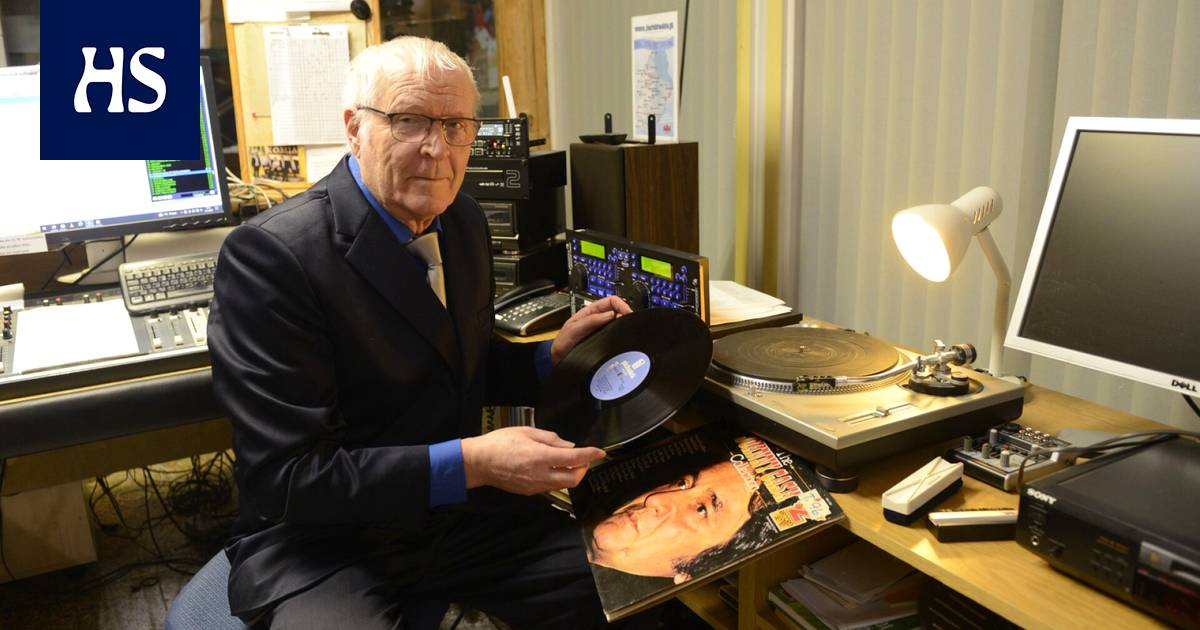Järviradio, which is turning 35 years old, is the last big independent commercial radio station.
Lake radio was actually born by accident. By the founder of the channel Markku Mäenpää was a great business idea. He wanted to automate the car phone network that was still manually mediated at the time, which was Finland’s first mobile phone network. But the ministry did not grant permission.
Enthused by that, Mäenpää decided to found a radio station. “We had the necessary technology and technical know-how. We didn’t understand anything from the supplier’s side.”
When Järviradio started broadcasting in Alajärvi, Southern Ostrobothnia, on November 20, 1987, local radio stations were doing well. Commercial radio operations had started in Finland a couple of years earlier, and new stations sprung up like mushrooms in the rain.
Take off ended up short. At the end of the decade, numerous local radio stations disputed music performance fees with the copyright organization Gramex and, during the dispute, failed to pay the fees. In 1990, the court ordered compensation to be paid. At the same time, the recession punished advertising sales, and the first wave of local radio bankruptcies followed.
Järviradio also participated in the copyright payment strike, but deposited the money in the bank. “When the court decision came, we paid Gramex and continued our work,” states Mäenpää succinctly.
A considerable part of Järradio’s broadcasts are live wish concerts, where all wishes come true, if only they can be found on the record.
35 years later, Finnish commercial radio looks completely different. Local radio is a marginal phenomenon. The last independent federal advertising channels, such as Radio Kajaus, have also disappeared in recent years.
“We are the only original commercial radio that has not gone bankrupt or been sold,” Mäenpää reminds.
Finnish commercial radio operations are practically a two-way business. The cake is shared by Nelonen Media, part of the Sanoma Group, and the multinational Bauer Media. Outside of them, only crumbs and one larger slice remain. It’s Lake Radio.
The channel has expanded steadily, and today 71 percent of Finns live in its coverage area. Järviradio reaches five percent of Finns in a week.
But among people over 65, Järviradio is by far the most listened to commercial radio, reaching more listeners than, for example, all of Nelonen Media’s channels combined. And on Saturday evenings, Järviradio is the most listened to commercial channel in all of Finland, according to Finnpanel’s National Radio Survey.
Mäenpäätä wonders why older generations are not interested in big advertising channels. “People in their thirties usually don’t buy new Mersu…”
Only a large independent commercial radio station is also strange in terms of content. Järviradio has no playlists or music manager at all. There are a million songs on the album, and Alajärvi is certainly the only radio studio in Finland that has both vinyl and clay puck players.
In its music profile, Järviradio implements its own kind of direct democracy. A considerable part of the broadcasts are live wish concerts, where all wishes come true, if only they can be found on the record.
This led three years ago to the Public Speech Council’s decision to be passed when it was played on the radio by Irwin Goodman paragraph Mutakuono and Lakupelle and in connection with it, the listener’s greetings: “Finnish back by the basic Finns.”
All wishes have been fulfilled even after that, but in similar cases the greetings have been left unread.
Lake radio is also the only almost nationwide radio station where you can buy airtime. The channel’s original license required program time for communities and associations. Such a thing has not been required for years, but the radio has maintained a practice that Mäenpää describes as “fostering freedom of speech”.
Through Järradio, the program is broadcast by many Christian movements of the free direction as well as the residents of Vånhollislestadion. Program time is also regularly bought by political parties and the European Commission.
Even in this activity, there has been no avoiding commotion. In 2014, the editorial office received a lucrative offer by fax from Moscow, in which the Russian state’s Russia Today propaganda office would have wanted its own program. So far, it is the only entity to which program time has not been sold.
Seventy-year-old Markku Mäenpää is a lifestyle entrepreneur, but assures that Järradio’s continuation is not up to him.
Purchase offers There have been several Järviradio, but they have not been taken because the operation is profitable. “But if there were economists leading this business, we would be bankrupt!” Mäenpää says.
Markku Mäenpää is in his seventies. What happens if a lifestyle entrepreneur wants to retire someday?
“The continuation of Järradio is not up to me.”
jarviradio.fi
Helsingin Sanomat and Nelonen Media belong to the Sanoma Group.
#Radio #rise #local #radio #stations #ended #short #time #left









